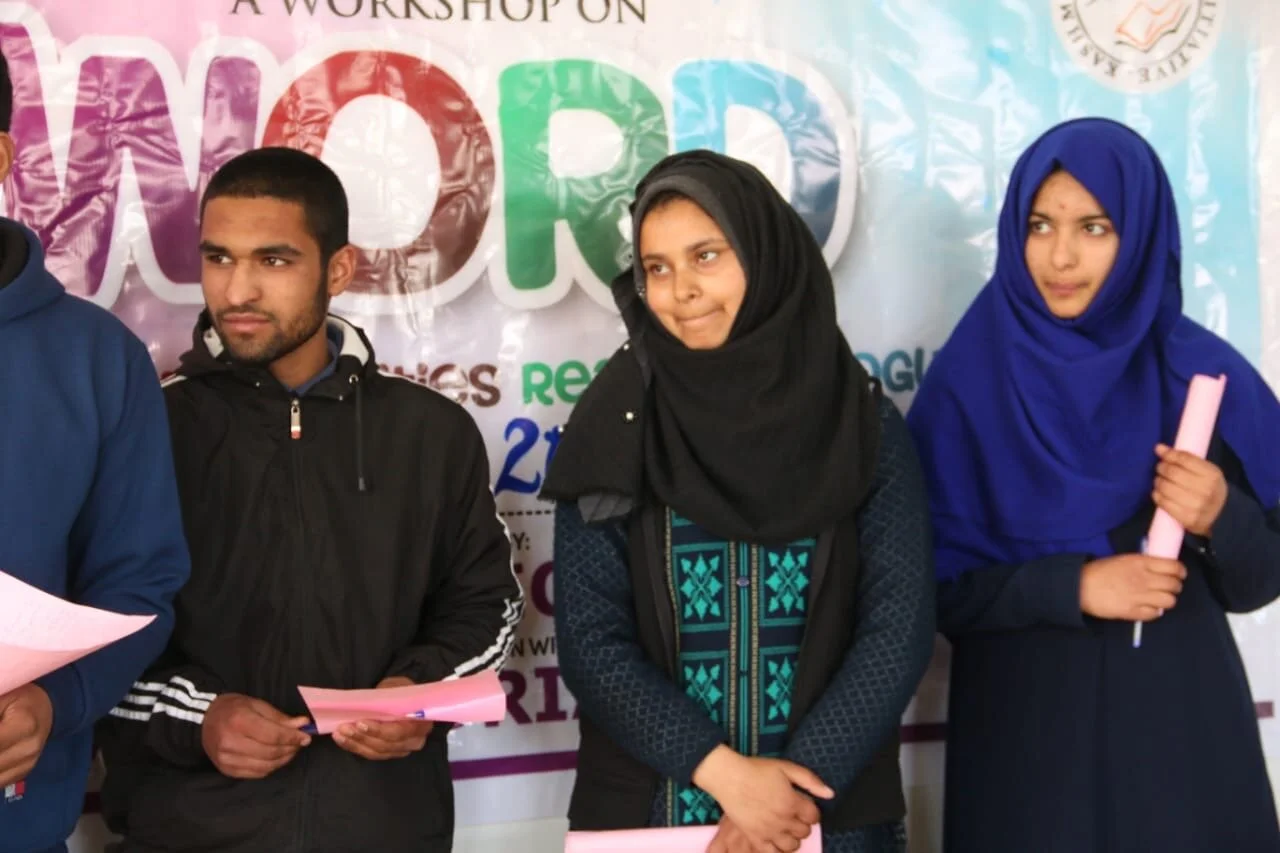Author: Ipsita Sarkar
“Who are you? Your name is …..You were born into a family, born with a surname, went to …… school, had so many teachings in schools, colleges, Who Are you? My name is…This is what I do,I go to this school, my parents are…, lived through so many experiences, but WHO ARE YOU?” Ms Navmeeta Mahajan, Life and Business Coach and Founder of Phoenix The Rise, conducted a motivating webinar session for the youth of Kashmir Education Initiative (KEI) on 13th August, 2020 on Self-Acceptance and Self Expression. It was a meaningful session for the Youth Scholars who were on the threshold of entering a new stage of their life-leaving school and entering college, about to embrace a journey of higher studies, new friends and the nascent phase of a possible career. Ms Navmeeta imparted valuable lessons on life and personal holistic goals to the young minds. She began the session by talking about Self-Acceptance as the awareness of one’s strengths and weaknesses. She spoke about how one’s identity was acquired through one’s birth, upbringing, education, and consequent experiences in life, but that it still often did not do justice to who one truly was. She brought attention to the fact that one’s sense of self was the truest and purest as a baby unaffected by judgements of the people and society around. Self-acceptance would truly come when we would be in total acceptance of our positive and negative traits with unconditional love and kindness. She gave an example that it would be easier to accept one’s qualities of being soft-spoken, but one would tend to be harsh upon themselves if they displayed the ‘negative’ emotion of anger. Ms Navmeeta stresses that it was important to accept that negative quality followed by acting on it rather than just resigning to its prevalence. It was bout forgiving and correcting one’s faults, rather than being passive about it. She then spoke about how significant childhood programming was in shaping one’s identity of self and building a sense of self-worth. She explained, “The age from 0 to 6 years old is a critical period of one’s life when children are scripting their own lives unconsciously by observing their parents, relatives and neighbours. They are absorbing actions and habits around them, such as whether one’s father wakes up early or works till late. Hence during this time, when we are told about our limitations, it becomes a part of our self-belief.” She said that one’s limitations did not define who they were and that it was important to accept one’s imperfections with equal love, compassion and kindness. At the same time as adults, when we were at the receiving end of any criticism, it was necessary to view it as an opportunity to improve oneself. She then spoke about Self-Expression as an extension of Self-Acceptance, as it was linked to expressing one’s opinions and feelings that were intricately linked to one’s personality. She added that one could self-express in different ways- not just through words and talking, but also through their talent and passions. For instance, a sportsperson could self-express through running, while a dancer through his or her facial expressions and gestures. That would give them true happiness, provided that the self-expression, whatever the medium used, happened genuinely from the heart. Hence it was necessary for everybody to explore their true talents and no age was too late to search within-to find out that source of true joy. Yet at the same time, one had to be prudent that in their enthusiasm to self-express, she or he one did not hurt somebody else’s sentiments. On the other hand, self-expression could lead to wonders, like how Einstein and Newton had devised pathbreaking Laws of Science and even lead to better inter-personal ties with friends and family. Towards the end of the Session, the KEI Scholars, who were on the brink of a transformational journey themselves- from School to College Life, some preparing themselves for a new social and academic life away from their homes in a new city had important questions on self-perception and image. When Mohsin asked about how to deal with over-thinking on being criticized, Ms Navmeeta suggested practising daily meditation to resist negative thoughts. Another scholar, Mehlika asked about body-image issues and how a girl with Dwarfism could feel good about herself and excel in a very public field of journalism, Ms Navmeeta answered that physical appearance did not determine one’s abilities. It would be useful for such a person to surround herself with positive people and focus on getting better at her work through hard work and dedication. The Scholars were filled with gratitude to receive her advice and wisdom and seemed all charged up to walk through new doors of life with hope and optimism.

